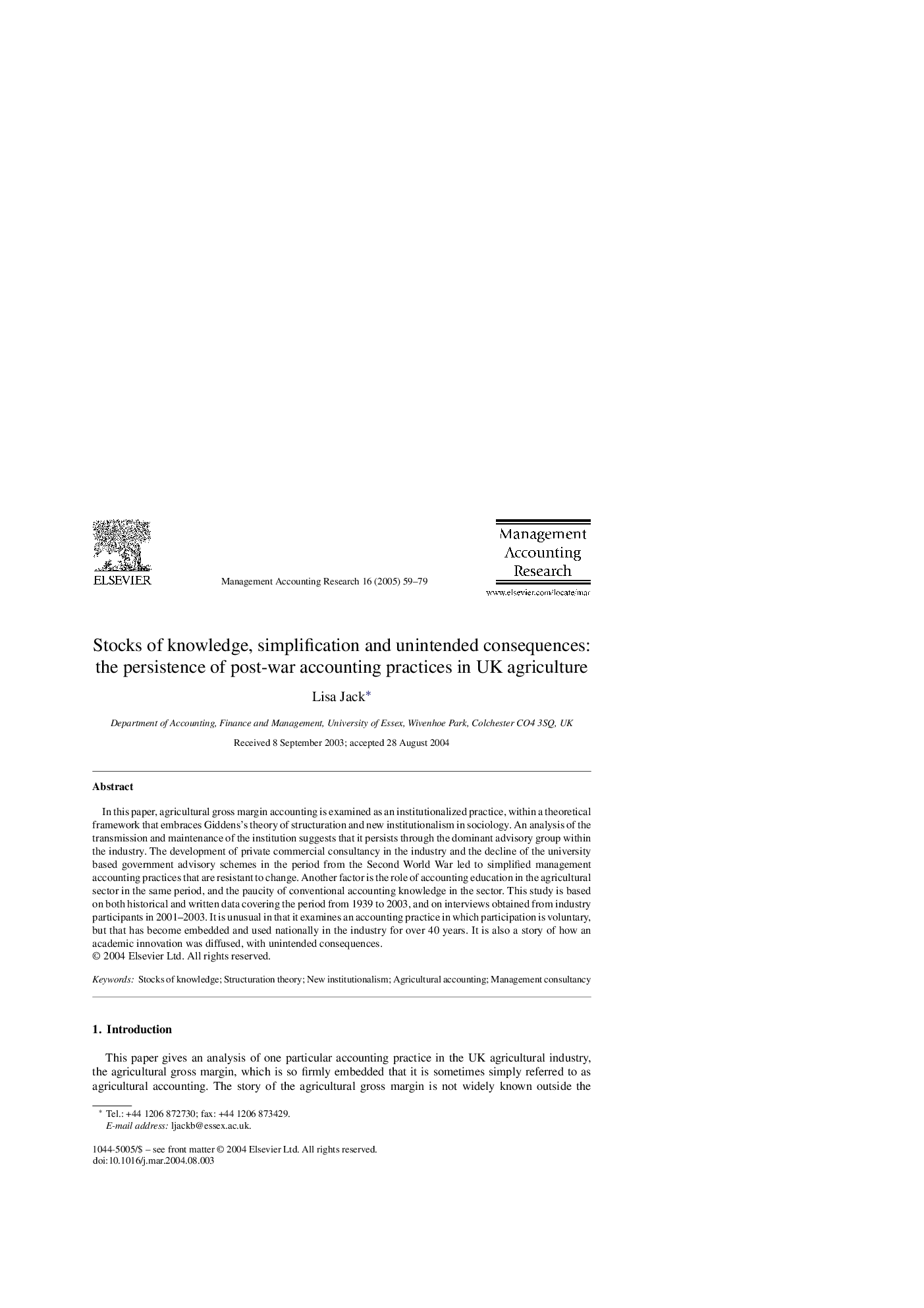| Article ID | Journal | Published Year | Pages | File Type |
|---|---|---|---|---|
| 10489055 | Management Accounting Research | 2005 | 21 Pages |
Abstract
In this paper, agricultural gross margin accounting is examined as an institutionalized practice, within a theoretical framework that embraces Giddens's theory of structuration and new institutionalism in sociology. An analysis of the transmission and maintenance of the institution suggests that it persists through the dominant advisory group within the industry. The development of private commercial consultancy in the industry and the decline of the university based government advisory schemes in the period from the Second World War led to simplified management accounting practices that are resistant to change. Another factor is the role of accounting education in the agricultural sector in the same period, and the paucity of conventional accounting knowledge in the sector. This study is based on both historical and written data covering the period from 1939 to 2003, and on interviews obtained from industry participants in 2001-2003. It is unusual in that it examines an accounting practice in which participation is voluntary, but that has become embedded and used nationally in the industry for over 40 years. It is also a story of how an academic innovation was diffused, with unintended consequences.
Related Topics
Social Sciences and Humanities
Business, Management and Accounting
Accounting
Authors
Lisa Jack,
